
Johann Baptist Joseph Maximilian Reger was a German composer, pianist, organist, conductor, and academic teacher. He worked as a concert pianist, as a musical director at the Leipzig University Church, as a professor at the Royal Conservatory in Leipzig, and as a music director at the court of Duke Georg II of Saxe-Meiningen.
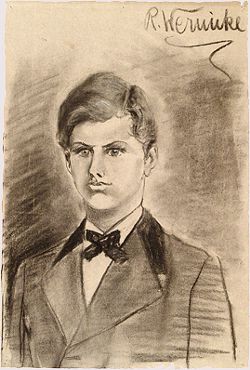
Wilhelm Reinhard Berger was a German composer, pianist and conductor.

Max Reger's 1915 Requiem, Op. 144b, is a late Romantic setting of Friedrich Hebbel's poem "Requiem" for alto or baritone solo, chorus and orchestra. It is Reger's last completed work for chorus and orchestra, dedicated in the autograph as Dem Andenken der im Kriege 1914/15 gefallenen deutschen Helden.

The Nordwestdeutsche Philharmonie is a German symphony orchestra based in Herford. It was founded in 1950 and, along with Philharmonie Südwestfalen and Landesjugendorchester NRW, is one of the 'official' orchestras (Landesorchester) of the state of North Rhine-Westphalia. The orchestra has been shaped by conductors such as Wilhelm Schüchter, Hermann Scherchen and Andris Nelsons. They have regularly served several cities in northwest Germany, and toured internationally to halls such as Berliner Philharmonie, Tonhalle Zürich and Großes Festspielhaus in Salzburg, also to the U.S. and Japan.

Gabriel Dessauer is a German cantor, concert organist, and academic teacher. After studies with Diethard Hellmann and Franz Lehrndorfer, he was responsible for the church music at St. Bonifatius, Wiesbaden from 1981 to 2021, conducting the Chor von St. Bonifatius until 2018. Besides normal church services, he conducted them in regular masses with soloists and orchestra for Christmas and Easter and a yearly concert. In 1995 he prepared the choir for a memorial concert commemorating the 50th anniversary of the end of World War II, performing Britten's War Requiem with choirs from countries involved in the war, and concerts in Wiesbaden and Macon, Georgia. Programs of choral concerts included Hermann Suter's Le Laudi in 1998, the German premiere of Rutter's Mass of the Children in 2004, and the world premiere of Colin Mawby's Bonifatiusmess in 2012 which he had commissioned for the choir's 150th anniversary. The concert of 2008, Vivaldi's Gloria and Haydn's Nelson Mass, was also performed at San Paolo dentro le Mura in Rome.
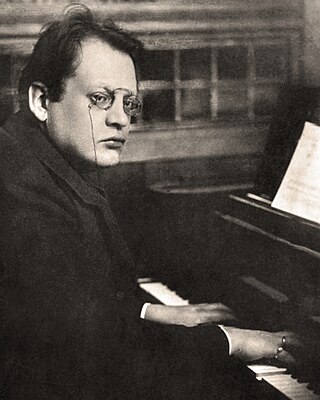
Der 100. Psalm, Op. 106, is a composition in four movements by Max Reger in D major for mixed choir and orchestra, a late Romantic setting of Psalm 100. Reger began composing the work in 1908 for the 350th anniversary of Jena University. The occasion was celebrated that year with the premiere of Part I, conducted by Fritz Stein on 31 July. Reger completed the composition in 1909. It was published that year and premiered simultaneously on 23 February 1910 in Chemnitz, conducted by the composer, and in Breslau, conducted by Georg Dohrn.

Unser lieben Frauen Traum Op. 138, No. 4, is a sacred motet for unaccompanied mixed choir by Max Reger. The German text is a poem by an anonymous poet, derived from a Volkslied. The piece is in F major and scored for up to six voices, SSATBB. Composed in Meiningen in 1914, it was published in 1916 after Reger's death as the fourth of Acht geistliche Gesänge. It is often performed in Advent.

Der Mensch lebt und bestehet, Op. 138, No. 1, is a sacred motet for unaccompanied mixed choir by Max Reger. The German text is a poem by Matthias Claudius, beginning with "Der Mensch lebt und bestehet nur eine kleine Zeit". The piece is in A minor and scored for eight voices in two choirs SATB. Composed in Meiningen in 1914, it was published in 1916 after Reger's death as the first of Acht geistliche Gesänge.

Nachtlied Op. 138, No. 3, is a sacred motet for unaccompanied mixed choir by Max Reger. The German text is a poem by Petrus Herbert, beginning "Die Nacht ist kommen". The piece is in B minor and scored for five voices SATBB. Composed in Meiningen in 1914, it was published in 1916 after Reger's death as the third of Acht geistliche Gesänge.

Philipp Julius Wolfrum was a German conductor, musicologist, composer, organist and academic teacher. He was influential to university education in church music in Heidelberg, and in 1907 became the town's Generalmusikdirektor.

Der Einsiedler Op. 144a, is a composition for baritone soloist, five-part choir and orchestra by Max Reger, written in 1915. The German text is a poem by Joseph von Eichendorff, beginning "Komm' Trost der Welt, du stille Nacht". The composition was published in 1916 after Reger's death by N. Simrock, combined with the Hebbel Requiem, as Zwei Gesänge für gemischten Chor mit Orchester, Op. 144.
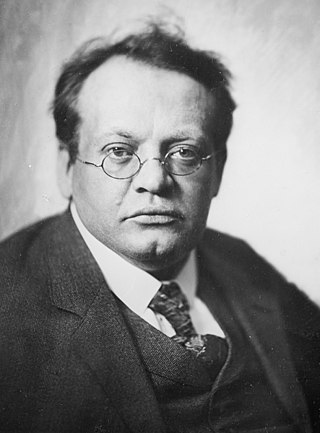
Geistliche Gesänge, Op. 110, are three motets by Max Reger. He composed them between 1909 and 1912:
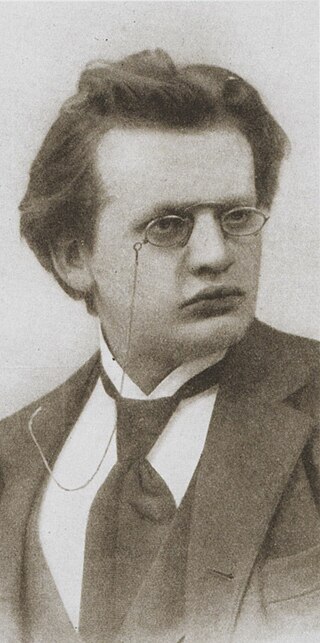
Gesang der Verklärten, Op. 71, is a composition by Max Reger for a mixed five-part choir and orchestra, a late Romantic setting of a poem by Carl Busse. Reger composed the work in 1903. He dedicated it to "Meiner geliebten Frau Elsa". It was published in 1905 and first performed in Aachen on 18 January 1906 by the municipal choir and orchestra, conducted by Eberhard Schwickerath.

Vier Tondichtungen nach A. Böcklin, Op. 128, is a composition in four parts for orchestra by Max Reger, based on four paintings by Arnold Böcklin, including Die Toteninsel. He composed them in Meiningen in 1913.

Drei Chöre, Op. 6, is a set of three compositions for mixed choir and piano by Max Reger, composed before 2 August 1892 in Wiesbaden. The texts are poems by three poets:
- Trost
- Zur Nacht
- Abendbild

"An die Hoffnung", Op. 124, is a Lied for alto or mezzo-soprano and orchestra by Max Reger, setting a poem by Friedrich Hölderlin. He composed it in Meiningen in 1912 and dedicated it to Anna Erler-Schnaudt, the singer of the first performance. It was published by Edition Peters the same year.

Die Weihe der Nacht, Op. 119, is a choral composition for alto, men's choir and orchestra by Max Reger, setting a poem by Friedrich Hebbel. He composed it in Leipzig in 1911 and dedicated it to Gertrud Fischer-Maretzki, the soloist in the first performance. It was published by Ed. Bote & G. Bock in Berlin the same year.
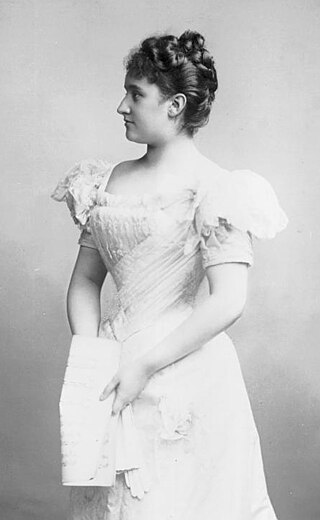
Lula Mysz-Gmeiner was a German concert contralto and mezzo-soprano born in Transylvania, who performed lieder recitals in Europe and the United States. She was an academic voice teacher in Berlin and taught both Elisabeth Schwarzkopf and Peter Anders.

The Piano Concerto in F minor, Op. 114, is a concerto for piano and orchestra composed by Max Reger in Leipzig in 1910. He dedicated the work to Frieda Kwast-Hodapp, who premiered it in Leipzig on 15 December 1910 with the Gewandhausorchester conducted by Arthur Nikisch. The difficult composition has been rarely performed and recorded. Pianists who have tackled it range from the American Rudolf Serkin, who first recorded it in 1959, to Markus Becker who was the soloist in an award-winning recording in 2017.













